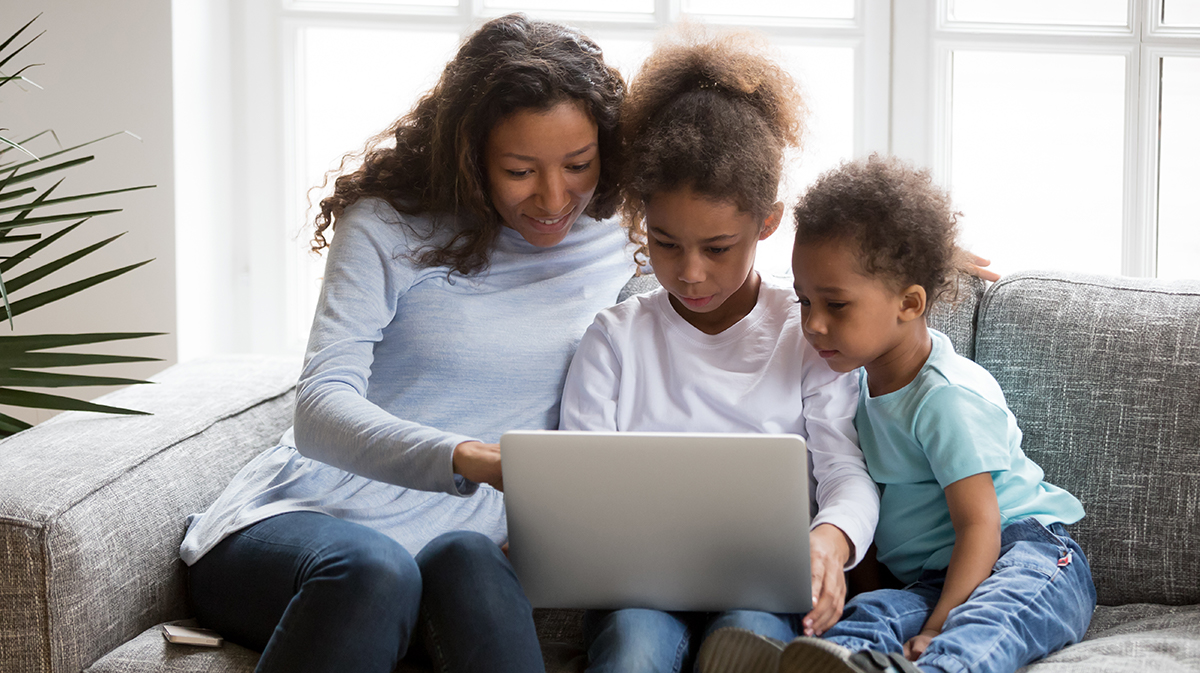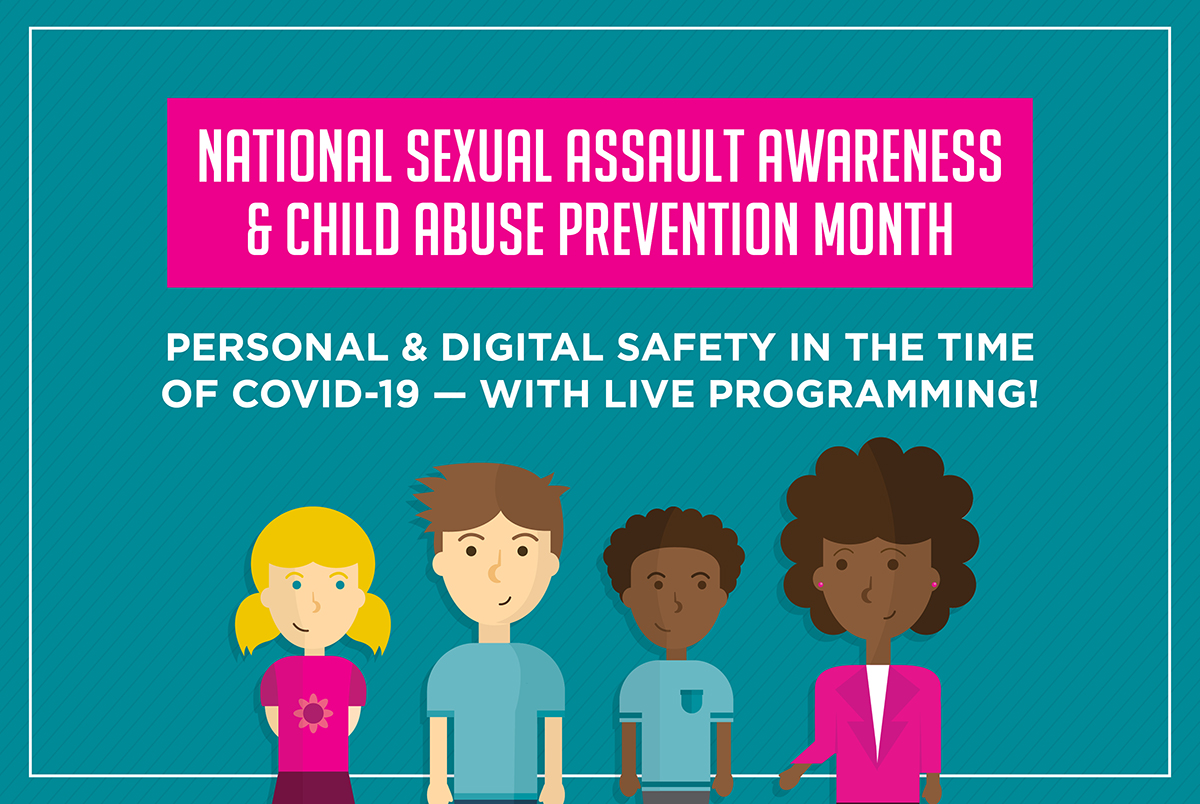April is National Sexual Assault Awareness Month and National Child Abuse Prevention Month. With stay-at-home orders, school closures, and social distancing in full swing, this April will undoubtedly be unlike any other families have experienced. While worries of a pandemic flood both news channels and parents’ minds, fears of personal safety may wane knowing children are at home and accounted for. But, safety experts and the FBI have cautioned parents to be aware of the sometimes hidden dangers for children within our own homes and around those we trust the most. When it comes to child safety, just as with the COVID-19 pandemic, do not panic – but become aware, and get prepared with safety strategies to keep kids safe both in the real world and online.
That’s why Lauren’s Kids is excited to launch a series of LIVE interactive and informative safety programs every Monday in the month of April – just visit the Lauren’s Kids Facebook page to tune in and participate!

Monday, April 6 at 12 noon
LIVE Lauren’s Kingdom book reading and Trusted Triangle activity with Lauren’s Kids Founder and CEO, Senator Lauren Book! Download the Trusted Triangle activity here to follow along from home.
For parents and children in grades 2 or younger.

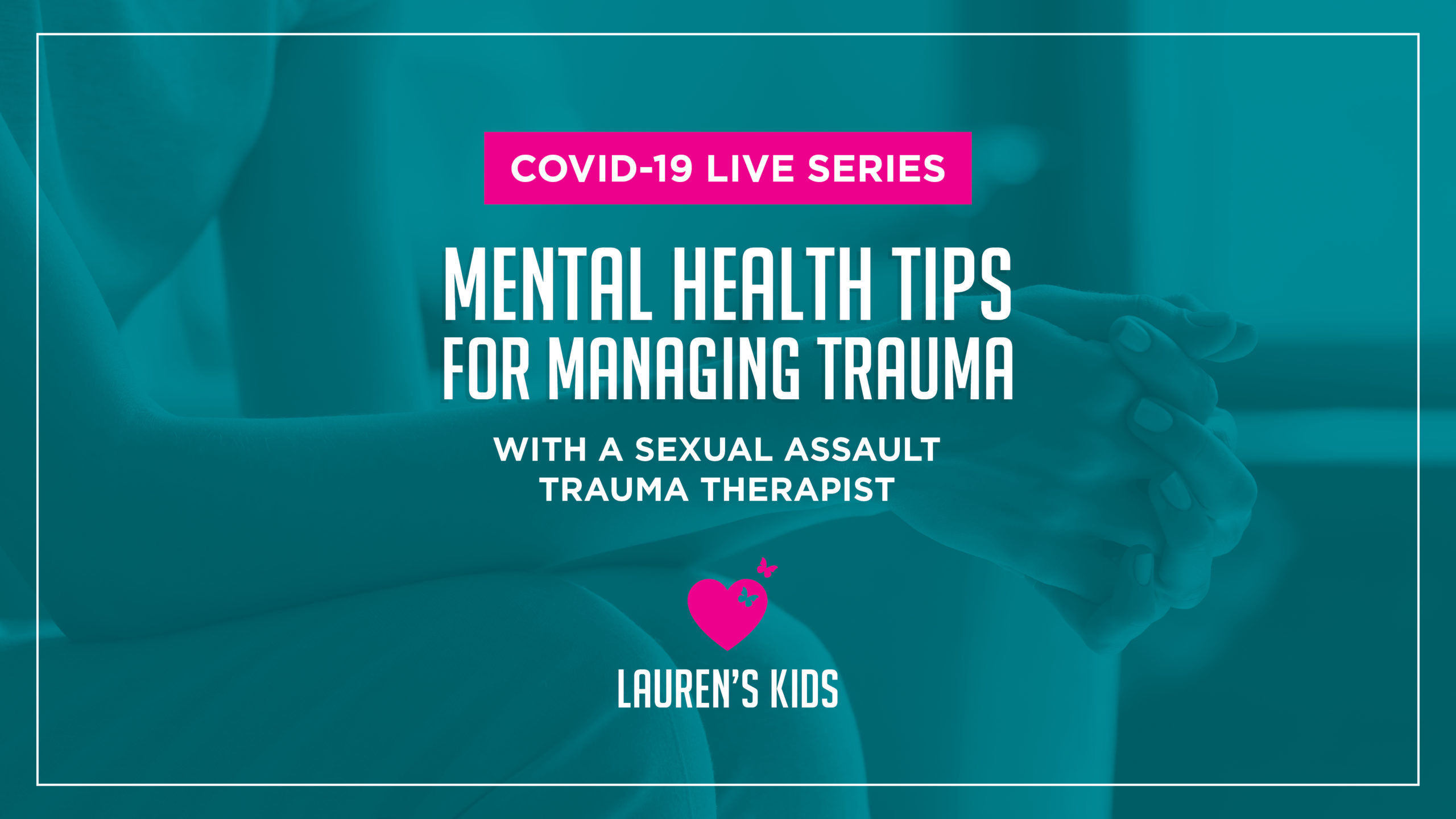
Monday, April 13 at 12 noon
Tasha Jackson, LCSW, trauma therapist and program director from the Gulf Coast Children’s Advocacy Center, shared ways to help survivors of sexual abuse deescalate and manage through PTSD during the increased stress of COVID-19.
For survivors, parents, caregivers, teachers, trauma therapists, and those who want to learn about managing trauma in times of acute stress.

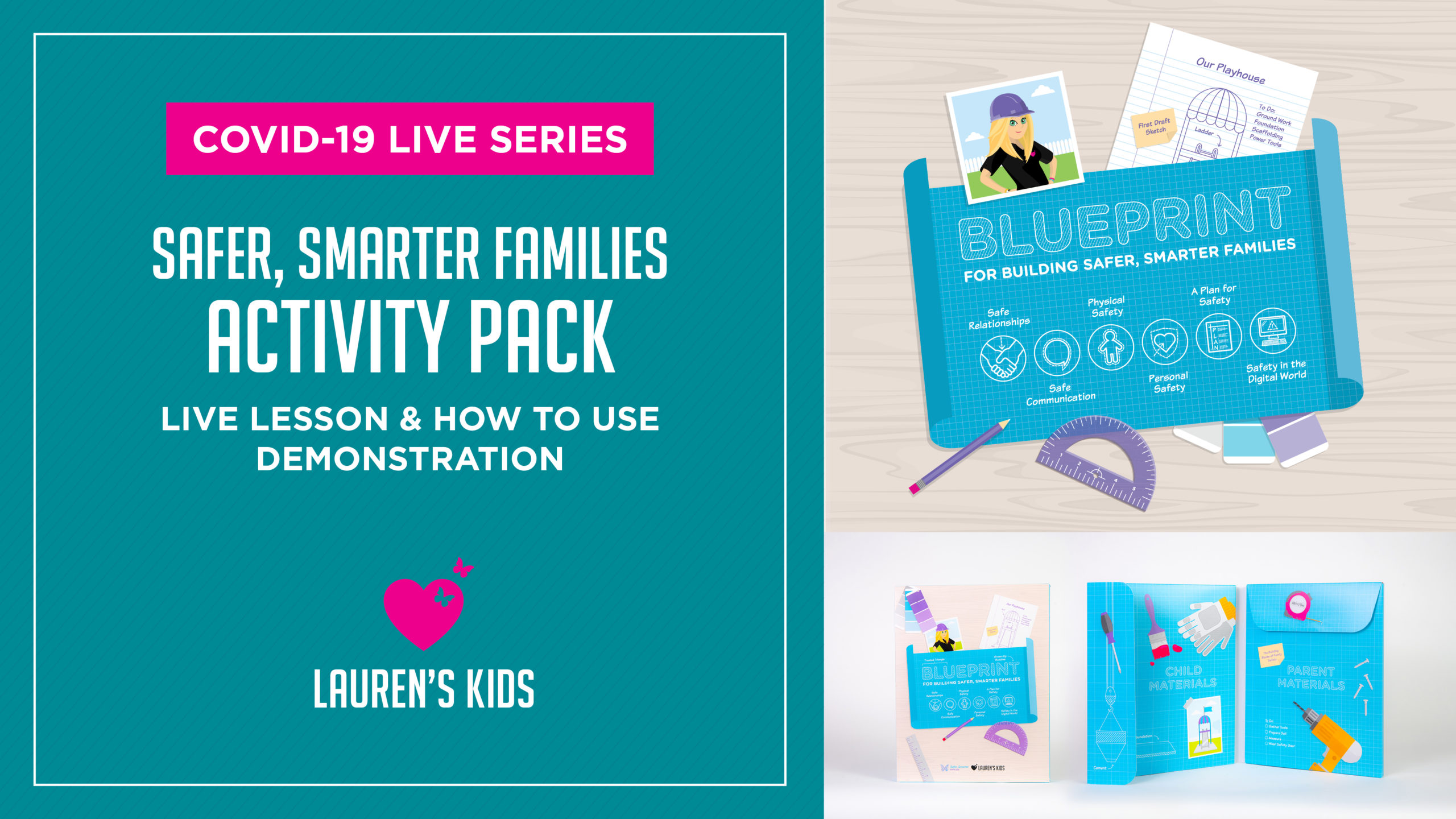
Monday, April 20 at 12:30
A member of the Lauren’s Kids team will do a live demonstration on how to use the Blueprint for Building Safer, Smarter Families interactive activity pack and demonstrate a safety activity. Note: these activity packs are FREE for Florida families and available for purchase outside of the state. Order at shop.laurenskids.org today.
For parents, caregivers, teachers, and adults who want to learn ways to prevent abuse and increase child safety.

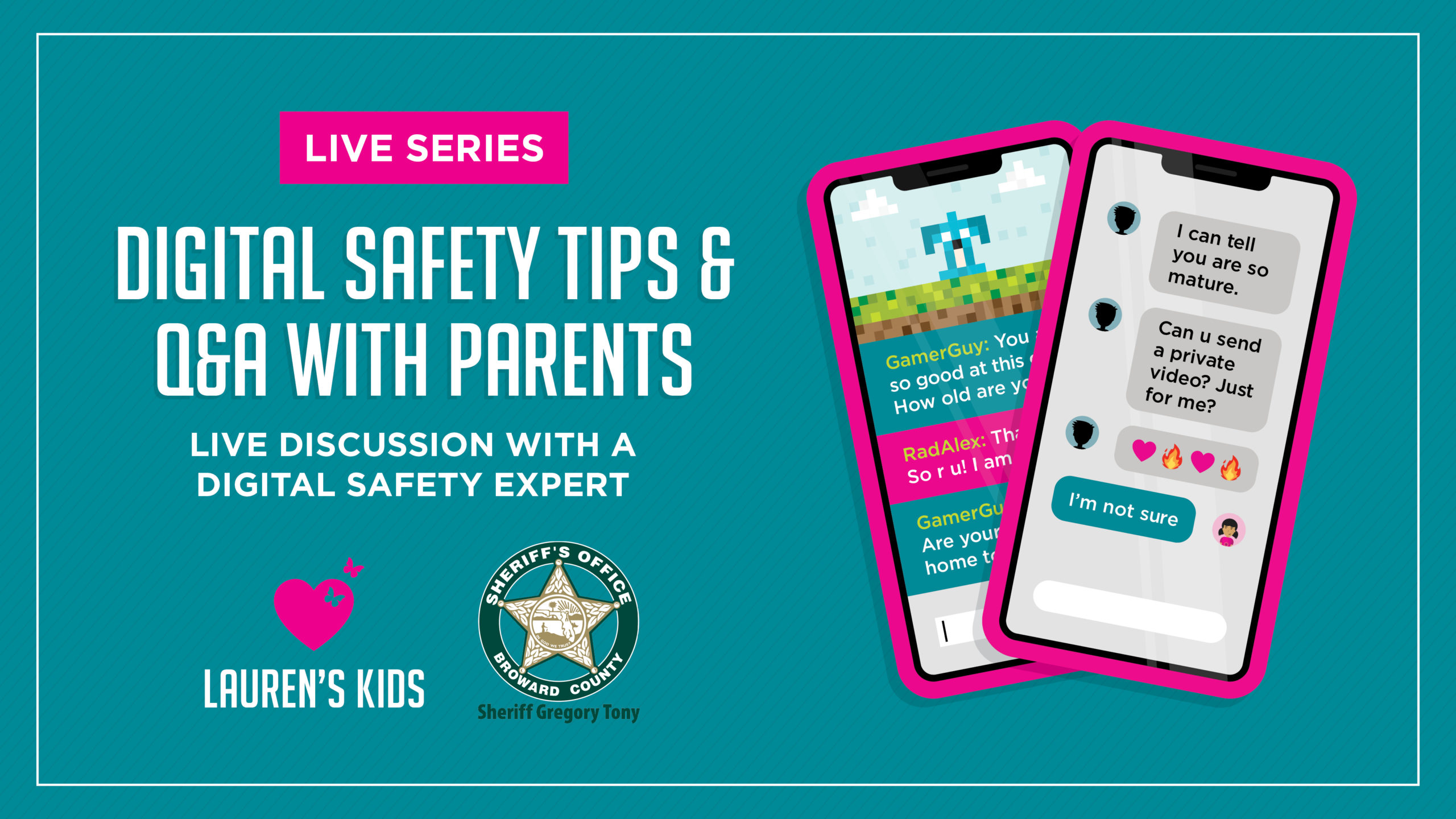
Monday, April 27 at 12:30
LIVE digital safety discussion with a digital safety expert from the Broward Sheriff’s Office followed by a live, interactive Q&A with parents. To type a question to the safety expert, participants will simply type their questions to be answered in real time.
For parents, caregivers, teachers, and adults who want to learn more about digital safety.
We can’t wait for you to join us over the next few weeks as we explore the topics above! Can’t make it to a live reading, lesson, or discussion? No worries! We will post the videos to LaurensKids.org.
The Issue 
It is important for parents to realize that 90 percent of the time a child is abused, it’s at the hands of someone they – and their parents or caregivers – know and trust. Sadly, this includes abuse within the family, which makes up about 30 percent of child sex abuse cases. Predators groom child victims and the adults in their lives by working to gain trust, then use secret-keeping and boundary violations to access and abuse a child. Children often suffer in silence, with 75 percent of child victims keeping their abuse a secret for at least a year; 45 percent of victims do not disclose for at least five years, and many keep their abuse a secret for a decade or more.
But the dangers of sexual abuse and exploitation are not only physical – predators are also lurking in the digital world, frequenting the same social media, entertainment, gaming, and even educational sites and apps that are popular with children and teens. In fact, 1 in 5 children who touch a digital device will be sexually solicited.
These statistics are staggering, but the solution is clear: 95 percent of child sexual abuse IS preventable through education and awareness. That’s why it is critical for parents and caregivers arm themselves and their children with safety strategies to keep kids safe both in the real world and online.
